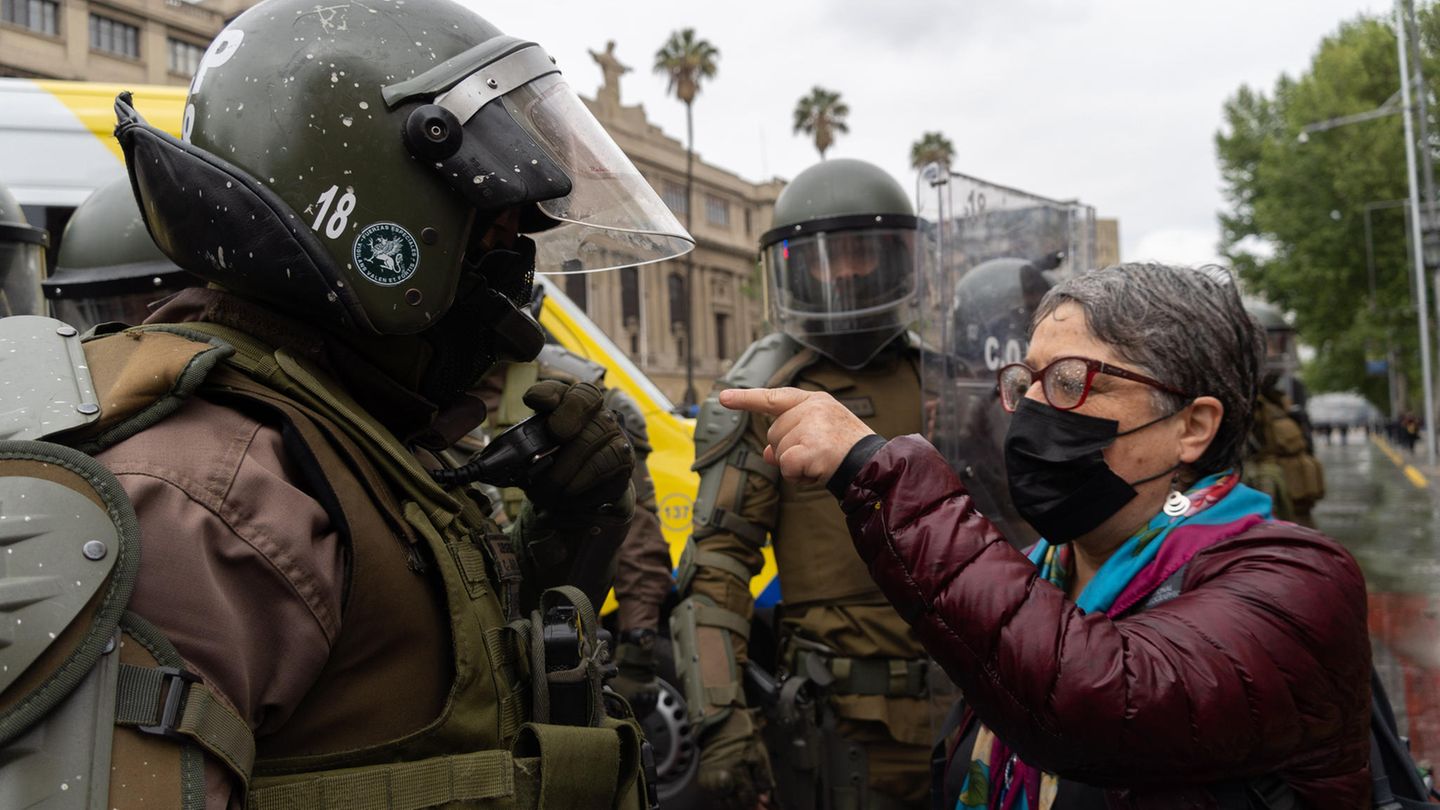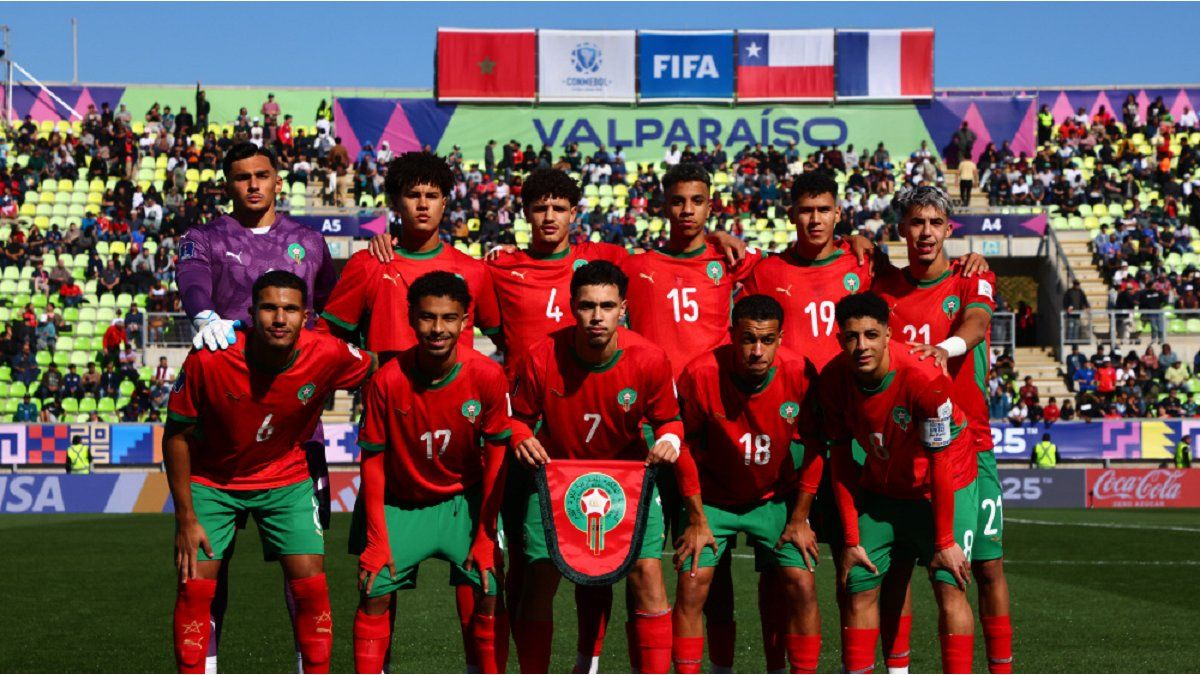For decades, indigenous people in southern Chile have been fighting for land ownership and independence. Now the government has declared a state of emergency – and thus triggered a new wave of violence, critics fear.
There is chaos in the south of Chile. There are repeated protests, arson attacks and clashes between security forces and the indigenous population. Now a woman was killed in a demonstration for the rights of indigenous people – and the conflict that has been smoldering for decades threatens to escalate.
In view of the new wave of violence, the Chilean government immediately declared a state of emergency in the south of the country. The military will support the police in the provinces of Biobío, Arauco, Malleco and Cautín in the next two weeks, said President Sebastián Piñera. He ordered the dispatch of soldiers to take action against “the serious disturbance of public order”. In the region there have been “repeated acts of violence related to drug trafficking, terrorism and organized crime committed by armed groups”. The “constitutional” state of emergency is “in no way directed against a people or a group of peaceful citizens,” emphasized Piñera.
Escalated demo: One dead and 17 injured
But the events of the past weekend have made many doubt what the president said. Around 1,000 members of the Mapuche indigenous people called for more autonomy from the Chilean state at a rally on Sunday in the capital, Santiago. When police cracked down on the crowd with water cannons and tear gas, one woman was killed and at least 17 other people were injured. As a result, some demonstrators attacked the officers with stones and sticks, as a journalist from the AFP news agency reported.
According to the police, a group of people wearing hoods attacked the forces with fireworks and hit the woman with one of them. She was then taken to hospital injured and died during treatment. The woman killed is a 43-year-old lawyer who watched the demonstration for a human rights organization, the organization and the university announced. On social media, many accused the security forces of brutal crackdown on the demonstrators and called for clarification. The mother of the death victim told journalists that no one believed the police’s statement.
How could it come to this?
In the home region of the Mapuche in southern Chile, a conflict over land and autonomy has been simmering for decades. Many indigenous people consider the land that is in the hands of farmers and loggers as their rightful possession and are demanding that it be returned. With around 1.7 million people, the Mapuche are the largest indigenous group among the 19 million inhabitants of the South American country.
The government’s lack of interest in a solution to the dispute has led individual radical Mapuche groups to protests and arson attacks on private property, trucks and machines in the timber industry in recent years. The conflict in the Arauco region has worsened, reports the “” reporter Lucia Newman from Santiago. “Many would say that the Chilean state has actually lost control of much of this region.”
For months, Chile’s President Piñera has therefore been under pressure from conservatives within his own party and other groups, such as truck drivers, to declare a “phase of siege” in the south. So far he has refused to do this, but that is the end of it. The governor of La Araucanía, Luciano Rivas, welcomed the sending of the troops. There is a “very serious security crisis” in the region, he told the broadcaster.
The political expert Lucía Dammert from the University of Santiago, however, criticized Piñera’s decision. The use of troops could even worsen the conflict and lead to an “escalation of violence,” she warned in an interview with the AFP news agency. announced on social networks on Wednesday that it would rebel against the state of emergency.
Hope clouded after an emergency has been imposed
Violent protests against the government had already broken out in Chile at the end of 2019. Because of their often brutal behavior, the so-called Carabineros – the uniformed police – came under repeated criticism. More than 30 people were killed in the demonstrations and hundreds were injured. A new constitution is now being drafted in response to the protests. The current one dates from 1980 and thus from the time of the military dictator Augusto Pinochet (1973-90). Many Chileans hold it responsible for the deep gap between rich and poor. The constituent assembly began its work in July – a referendum is to be held on the constitutional text in 2022.
In a historic election, the assembly named Elisa Loncón, a member of the Mapuche, as its chairman. In addition, 17 of the 155 seats in the convention went to members of indigenous peoples – seven of them for the Mapuche. These steps had raised hopes among many indigenous people that their concerns would be given greater consideration – who will now be buried again with the emergency that has been imposed. Loncón himself described the president’s decision as “worrying”. “What the citizens need here are political and economic solutions based on culture that make it possible to overcome poverty in the communities,” said the chairwoman and at the same time criticized the date of the announcement.
Piñera declared a state of emergency on October 12th – the day on which all of Latin America commemorates the “discovery” of America by the navigator Christopher Columbus. For many indigenous people in particular, the seafarer is symbolic of the violent conquest and colonization of the continent. “It is the day we cannot celebrate because that was the day the genocide began,” criticized Loncón.
Sources: “”, “”, with AFP
David William is a talented author who has made a name for himself in the world of writing. He is a professional author who writes on a wide range of topics, from general interest to opinion news. David is currently working as a writer at 24 hours worlds where he brings his unique perspective and in-depth research to his articles, making them both informative and engaging.



